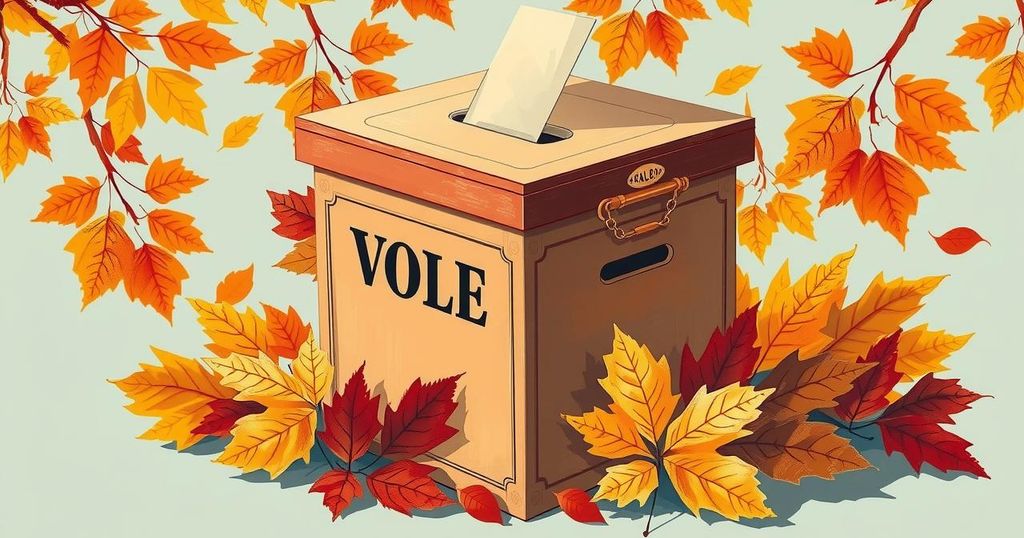The Wisconsin Supreme Court election represents a significant national political battle, with over $59 million in spending highlighting the influence of major donors, including Elon Musk. The rivalry between Brad Schimel and Susan Crawford reflects concerns over abortion rights, voting laws, and the future of Donald Trump. Voter turnout and local engagement are critical as both sides mobilize resources to secure victory in this pivotal election.
Wisconsin voters have commenced their participation in a critical state Supreme Court election characterized by unprecedented financial contributions from major donors, notably billionaire Elon Musk. This contest depicts a broader national political struggle between conservative and liberal factions, wherein the ideological balance of the court is at stake, with implications for significant issues such as abortion rights, voting regulations, and immigration policies.
The election has garnered intense scrutiny owing to the substantial financial resources mobilized from both sides. Republican candidate Brad Schimel and Democratic candidate Susan Crawford have emerged as prominent figures, with millions invested by influential donors aiming to sway the outcome. This judicial race represents not just a state election, but has become a significant battleground reflecting national political tensions.
As early voting unfolds, many Wisconsin residents express concern regarding the intrusion of national interests in the state election. Citizens cite the court’s influence on critical policies and raise alarms about the overwhelming amount of outside funding impacting local judicial elections. For example, Maggie Freespirit, a retired electrician, acknowledges the race’s importance for abortion rights, while another voter, Steve Ravely, emphasizes his approval of Schimel’s approach to immigration.
The financial scale of this election is unprecedented, with the Brennan Center for Justice estimating spending to exceed $59 million. This figure shatters existing records and is expected to grow further as the election date approaches. While Musk-affiliated entities have invested over $11 million supporting Schimel, Democratic efforts are backed by notable figures like George Soros.
Political figures, including Illinois Governor J.B. Pritzker and Minnesota Governor Tim Walz, are campaigning to counter the influence of Musk and conservative megadonors. Activists are mobilizing communities, with figures such as Eric Holder urging turnout among Black voters. The emphasis remains on sustained community engagement, distinguishing local efforts from significant national interventions.
Musk’s financial involvement has raised eyebrows among constituents, particularly in urban areas. Voters like Ellen Gilligan express apprehension that Musk’s funding may distort the election’s outcomes. Furthermore, the race serves as a referendum on former President Donald Trump’s future, with Crawford branding Schimel as “Elon Schimel” and suggesting that Musk’s influence overshadows his campaign.
Schimel has welcomed Trump’s endorsement, demonstrating a clear alignment with the former president and his supporters, which is evident from his appearances at Republican rallies. This collaboration elevates the stakes of the election, prompting both camps to enhance their voter outreach initiatives. The ramifications of this judicial race extend beyond Wisconsin, potentially influencing the legal framework governing future presidential elections.
In summary, the Wisconsin Supreme Court election has become a focal point of national political contention, fueled by record-breaking financial contributions and aligning interests from prominent figures like Elon Musk and Donald Trump. The outcome of this race is pivotal not only for Wisconsin’s judicial landscape but could also steer the direction of critical policies at a national level. As voters mobilize, the influence of external money in local elections raises significant concerns about electoral integrity and democratic engagement.
Original Source: www.newsweek.com






